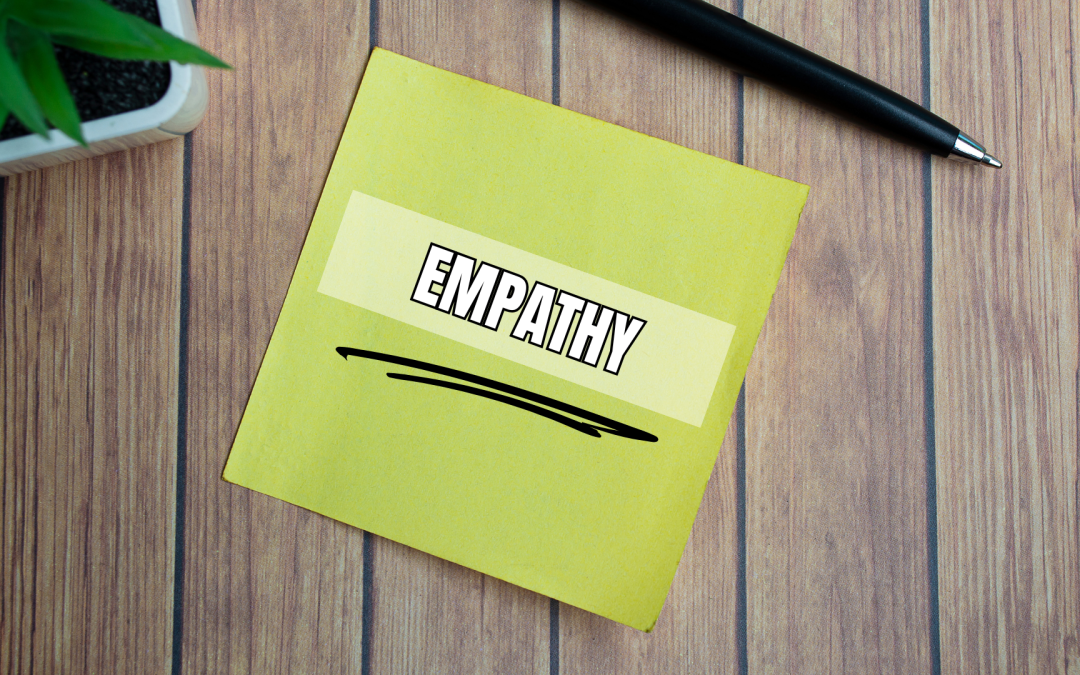Sophie always knew she felt things more deeply than others.
In meetings, she could sense tension before anyone spoke a word. When a team member was struggling, she was the first to notice. People gravitated to her when they needed someone to confide in. And as a leader, she prided herself on creating a psychologically safe space for her team.
But over time, Sophie began to feel emotionally drained. She found herself avoiding difficult conversations because she didn’t want to upset anyone. She spent her evenings ruminating on colleagues’ problems, sometimes losing sleep over decisions that weren’t even hers to make. She started to wonder: Is my empathy becoming a liability?
If you or someone in your team leads with Empathy®, this might sound familiar.
Empathy® is a beautiful and powerful strength—it allows leaders and team members to connect deeply with others, build trust, and foster a culture of care. But like any talent, when it’s overused, misapplied, or left unchecked, Empathy® can have blind spots. And for emotionally attuned leaders like Sophie, this can come at a cost to their wellbeing and overall leadership effectiveness.
Common Blind Spots of Empathy® — and How to Navigate Them
1. Emotional Overload
Those with Empathy® often absorb the emotional energy in the room. While this helps them understand what others are experiencing, it can leave them emotionally depleted—especially in high-pressure or emotionally charged environments.
Try this:
- Do a daily “emotion check-in” to ask: What’s mine and what have I picked up from others?
- Build a self-care routine that includes emotional decompression—journaling, walking, meditation or creative outlets.
- Limit time in high-drama environments or step out for a reset when group energy becomes overwhelming.
- Use visualisation practices to “release” emotions that don’t belong to you.
- Practice mindfulness to stay grounded in your own state of being.
2. Difficulty Setting Boundaries
People with Empathy® tend to be the go-to person for others’ emotional needs. While that’s a strength, it can also mean saying “yes” too often or taking on burdens that aren’t yours to carry.
Try this:
- Clarify what you’re responsible for—and what you’re not. Write it down.
- Say, “I hear you and I care. Let’s find the right support for this together,”rather than assuming you must fix things.
- Use scheduling tools (like protected time blocks) to manage how much emotional space you give to others in a day.
- Practice small, low-risk “no’s” to build muscle memory for boundary setting.
- Consider developing a “support resource list” so you can refer others to EAPs, leaders or HR when appropriate.
3. Avoidance of Conflict
Because they are sensitive to emotional undercurrents, Empathy®-dominant individuals may avoid giving difficult feedback or having hard conversations, fearing they’ll hurt others’ feelings or disrupt harmony.
Try this:
- Reframe conflict as a form of care—ask yourself, “What becomes possible if I have this conversation?”
- Script out difficult conversations beforehand, leading with compassion and curiosity.
- Use “I” language and validate emotions, but hold firm to what needs to be said.
- Practice with a trusted colleague or coach to build confidence in delivering feedback.
- Start small—address minor issues early rather than letting things fester.
4. Overidentifying with Others’ Emotions
When empathy goes unchecked, it’s easy to blur the lines between your emotions and someone else’s. This can lead to clouded judgment, indecisiveness, or even taking on the role of emotional rescuer.
Try this:
- Pause before reacting—ask: Is this emotion mine, or am I mirroring someone else?
- Use journaling or reflective practices to explore your own perspective.
- Seek out data or alternate viewpoints to balance emotional input with context.
- Build intentional space between conversations and decision-making (e.g. “Let me sleep on that”).
- Practice detachment with care—being present with others’ emotions without becoming engulfed by them.
Empathy® is not your weakness—it’s your gift.
If you lead with Empathy®, you don’t need to toughen up, numb down, or stop caring. Your ability to feel with others is one of the most valuable relational gifts you offer.
But as Sophie discovered, having the capacity to feel deeply is only part of the story—real growth comes when you learn to lead with empathy, instead of being led by it.
Need Support Navigating Your Strengths?
If you’d like support unpacking your CliftonStrengths® results, deepening your self-awareness, or developing strategies to manage those pesky blind spots, reach out to Alex at alexandra@tanyaheaneyvoogt.com.
About Alexandra Heaney
Alex is a Gallup-Certified CliftonStrengths® Coach and Workplace Coach with a rich background in Mental Health Nursing and Psychology. She brings a calm, insightful, and evidence-based approach to her coaching.
She not only helps individuals and teams understand their strengths, but also how to use them intentionally, confidently and with greater impact.

Whether you’re new to the Strengths framework or looking to take your application to the next level, Alex can support you to:
- Gain clarity around your dominant themes
- Identify and work through common overuse patterns and blind spots
- Leverage your strengths in leadership, collaboration and wellbeing at work
- Build team culture through strengths-based awareness and appreciation.
Strengths are powerful—especially when you know how to work with them and effectively balance the power house strengths like Empathy.
Reach out to Alex at alexandra@tanyaheaneyvoogt.com to find out more.


Recent Comments